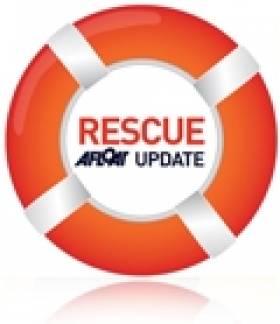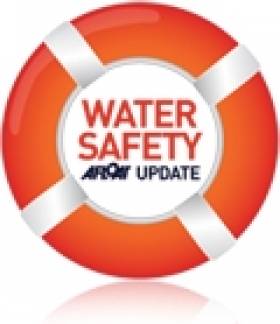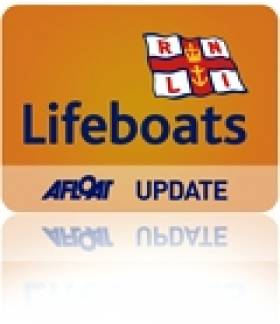Displaying items by tag: Flares
RYANI Discussing Options for Safe Disposal of Out-of-Date Flares
RYA Northern Ireland says it has been in discussions with British Marine and other stakeholders regarding the safe disposal of out-of-date flares.
Marine flares have become increasingly difficult to dispose of in Northern Ireland in recent years, which RYANI recognises “has been a source of immense frustration for boaters”.
While facilities exist for expired flare disposal elsewhere on the island of Ireland, there are currently no such facilities in Northern Ireland.
And while marinas and chandleries in the region have been approached regarding the possibility of hosting such collection hubs, RYANI says that “none of these sites have agreed to take this on and Northern Ireland continues to have no designated facilities for the safe disposal of flares”.
It adds: “There are ongoing conversations with the wider sector to try and resolve this situation with an amnesty day also being explored.
“We will keep our members updated as soon as any development is made but reassured that the sector is working hard to find a solution here in Northern Ireland.”
Product Recall Notice for Pirolec L-35 Rocket Parachute Flare Following Fatal Incident
Marine Notice No 7 of 2023 advises of a safety notice issued by the Dutch Safety Board for rocket parachute flares relating to model L-35 or L-35A manufactured by LECEA Sistemas Pirotécnicos Avanzados, S.A. The manufacturer has also issued a recall notice.
All owners of a Red Rocket Parachute Flare from Pirolec, type L-35/L35A, batch 0525/2021–113 are requested to stop using flares from this batch and replace them. If in doubt, operators should contact the manufacturer at [email protected].
This safety alert follows a fatal incident onboard a Dutch vessel when a flare reportedly exploded prematurely during an attempted launch.
It is important to note that the SOLAS Convention requires no less than 12 rocket parachute flares, complying with the requirements of the Life-Saving Appliances Code, shall be carried and be stowed on or near the navigation bridge.
What To Do About Time Expired Flares?
Reviewing the equipment on my Sigma 33. Scribbler, before launching this year, I've been wondering about flares.
I don't have any needing disposal at present, but I've been following the debate in the UK where the Royal Yachting Association has said that "it is worth looking again at effective alternatives that might replace them altogether".
I looked up the coastal safety website of the MCA there – the Maritime and Coastguard Agency – which didn't mention flares. The RYA has highlighted that.
The yachting association takes the view that anyone carrying flares who is not compelled to do so – and that's only for over 45-footers in the UK – should pay for their disposal.
"It is not our intention to prevent those who carry flares as part of their safety equipment from doing so, but in every other area of society, the holders of hazardous waste, which out-of-date flares are classified as, are expected to dispose of it legally and responsibly." The RYA is warning that if a boatowner carries flares, they'd better budget for the cost of eventual disposal.
The RYA is warning that if a boatowner carries flares, they'd better budget for the cost of eventual disposal
That echoes the UK Department of Transport which closed a consultation on flares last month, making it clear that it favours the 'polluter pays principle to dispose of flares.
In March last year, the UK MCA renewed its advice to yacht owners to carry flares for use in an emergency, rather than using Electronic Visual Distress Signals. It says it has been spending €250,000 sterling a year for a free flares disposal service, the contract for which will expire in December. But its figures show that when it started disposing of flares free it dealt with 60,000 a year but that number has dropped to less than 12,000.
As what happens in the UK often impacts here, I asked our Department of Transport, it having responsibility for the Coast Guard here - What are the existing provisions/arrangements for the safe disposal of out-of-date flares by owners of yachts/motorboats in the leisure sphere?

The Department's Press Office sent me Marine Notice No.13, amended last October, detailing its scheme for the safe disposal of 'time-expired' flares and listing eight chandlers in Clare, Cork, Donegal and Dublin where they may be taken.
They are Derg Marine in Killaloe; CH Marine in Skibbereen and Cork City; Union Chandlery, Cork; Swan Net Gundry, Castletownbere; Atlantic Marine Supplies and Swan Net Gundry in Killybegs; O'Sullivan Marine in Rathcoole, Dublin and Solas Marine in Dun Laoghaire Harbour.
Download the full notice here
That is good to know. My concern about flares is eased.
Podcast below
The Royal Yachting Association (RYA) in the UK has responded to a consultation, launched by the Department of Transport (DfT), on the disposal of pyrotechnic flares.
The consultation sought views on the safe disposal of marine pyrotechnics, looking for a practical alternative to the Maritime and Coastguard Agency’s temporary ‘last-resort’ service.
The RYA says that the compulsory carriage of flares by recreational boaters is an outdated and ineffective approach to maritime safety.
Having to carry flares, the RYA says, directly creates the problem of their disposal.
The RYA’s main case for the removal of the compulsory carriage is both the technological advances in alternative equipment, and the inherent lack of reliability and effectiveness that the flares provide.
“Modern technology such as radios, phones and other satellite-connected technologies provide safer, affordable and significantly more reliable alternatives to pyrotechnic flares,” says Phil Horton, RYA environment and sustainability manager. “It is disappointing that this consultation does not consider removing mandatory carriage requirements as part of the solution as, in our opinion, that is the only viable way ahead.
“However, should the MCA continue to require the carriage of flares, then the RYA’s view is that extended producer responsibility is the only reasonable solution for their safe disposal. A levy on the purchase of new flares, and a requirement for vendors to recover out-of-date product, would ensure that industry addresses the issue.”
US Marine Expert Disagrees With RYA Position on Distress Flares
#flares – US marine writer Joan Wenner saw Afloat.ie's story on the RYA's position on distress flares. Flares have outlived their usefulness in an age of modern water safety technology, says theRoyal Yachting Association - which is urging British authorities to drop the requirement for flares on yachts larger than 13.7 metres.
Wenner ran the story by the owner and president of Landfall Navigation, Inc., Stamford, Connecticut, USA, a noted expert on the subject, for a possible story for a US publication.
Captain Henry Marx, (a former U.S. Navy submariner and mariner with over 50 years of marine experience including blue water racing off Southern Norwegian Coast and Caribbean), gave the following comment:
"First, I do not agree with the RYA on this, especially for vessels under 65 ft. For the well crewed offshore race boat maybe --but how many Bayliner owners have their DSC hooked up - assuming they know what it is? Flares are simple and they work.
Many rescues are effected by "the boat over there" who is probably not monitoring his any radio, and remember, none of us have electronics that enbale us to hear and locate EPIRBs/PLBs -- you have to call the U.S. Coast Guard SAR Center and ask for the location of your PLB Man Overboard! Second, the U.S.oast guard is particularly resistant to other opinion about safety gear. Now there are some "Electronic Flares" appearing on the market - and they could be interesting - but until USCG Approved - do not count for U.S. flagged vessels"
Joan Wenner, J.D. is a longtime USA marine writer. She contacted Captain Henry Marx for his comments.
Flares No Longer Needed To Signal Distress Says RYA
#Flares - Distress flares have outlived their usefulness in an age of modern water safety technology, says the Royal Yachting Association - which is urging British authorities to drop the requirement for flares on yachts larger than 13.7 metres.
On her Yachting World blog, Elaine Bunting highlights quotes from the RYA's cruising manager Stuart Carruthers who argues that the need for flares is negated by "EPIRBs, personal locator beacons, and VHF DSC that will do the job automatically".
He adds: "If you are not carrying another electronic device [aside from flares] then you'd be barking mad, because that's the way the management of search and rescue has gone."
Carruthers also points out that an omnidirectional laser flare works out as better value than an offshore flare pack, and performs a better job of helping to pinpoint your location in a rescue effort.
The RYA is now pushing for the UK's Maritime and Coastguard Agency (MCA) to review its safety requirements for craft over 13.7m, which make compulsory the carriage of parachute flares - which are illegal if the operator has not undergone training, though there is currently no training available for yachtsmen.
Yachting World has much more on the story HERE.
#RNLI – Crosshaven RNLI lifeboat was tasked at 7.30pm on 6 January to a report of a red distress flare being reported by the control tower at Cork airport. A compass bearing was given which put the incident in the vicinity of the mouth of Cork harbour.
The Atlantic 75 class lifeboat 'Miss Betty" with Alan Venner in command along with fellow volunteers Ian Venner and Vince Fleming searched a large area in seas of 2 metres high between Ringabella and Roches Point. Crosshaven and Guileen Coast Guard units were also tasked to carry out shoreline searches from Roberts Cove in the West to Trabolgan in the East.
All commercial and fishing vessels in the locality were contacted and asked to assist with Radar sweeps of the area. After an intensive search lasting well over 2 hours the lifeboat returned to Station.
Commenting on the incident, Ray Heffernan, Volunteer lifeboat launching authority, believed the dreaded Magic Lanterns were once again to blame. He said " between the RNLI crews on the lifeboat and those manning the station, and the two Coast Guard units searching the shoreline, up to 60 volunteers have had their evening disrupted by the people who wantonly let off these lanterns with no regard for the consequences. Until we are absolutely satisfied that no persons are in danger , we have to keep the search up".
Clifden Lifeboat Calls for Vigilance over Hoax Flares
The RNLI Lifeboat in Clifden, Co. Galway has issued a plea over a series of call outs due to the irresponsible use of flares at the weekend. Flares were spotted off Roundstone which led to an extensive search mission in the area. It is the latest in a series of flare sightings in the area. Sources believe the cause of the problem may be expired flares let off from land.
Related Safety posts
RNLI Lifeboats in Ireland
Safety News
Rescue News from RNLI Lifeboats in Ireland
Coast Guard News from Ireland
Water Safety News from Ireland
Marine Casualty Investigation Board News
Marine Warnings

































































